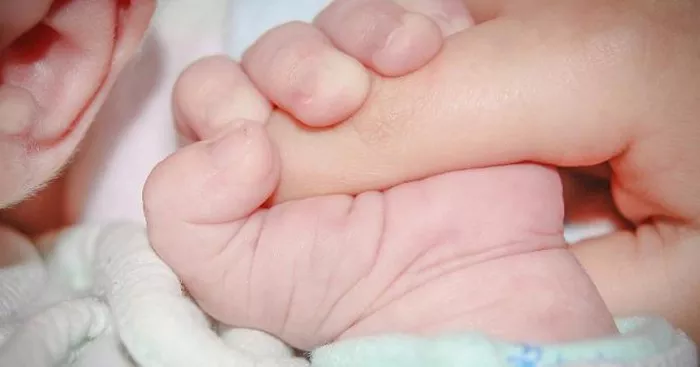Infertility, defined as the inability to conceive after one year of regular, unprotected intercourse, affects a significant number of couples worldwide. Concurrently, depression, characterized by persistent feelings of sadness, hopelessness, and a lack of interest or pleasure in most activities, is a prevalent mental health disorder. The intersection between these two conditions is complex and multifaceted, sparking ongoing debate and research. Understanding the nuances of their relationship is crucial for those affected and for healthcare providers striving to offer comprehensive care.
Can Depression Directly Cause Infertility?
Current scientific literature does not definitively establish a direct causal link between depression and infertility. However, some research indicates potential connections, particularly in specific contexts.
A notable study published in the journal Fertility and Sterility explored the relationship between male depression and pregnancy outcomes. The study found that male depression was associated with lower pregnancy rates, suggesting a potential indirect pathway through which depression might influence fertility. The exact mechanisms remain unclear, but it highlights the need for further research in this area.
Despite these findings, the consensus in the medical community is that depression alone does not directly cause infertility. Biological pathways connecting the two conditions are not conclusively proven, indicating the complexity of their interplay.
See also: What is Infertility Depression: Definition & How it Works
Possible Indirect Effects of Depression on Fertility
While a direct causal link remains elusive, depression can impact fertility indirectly through various behavioral and physiological mechanisms.
Impact on Sexual Behavior and Lifestyle Choices
Depression often leads to a decreased libido and sexual dysfunction, which can reduce the frequency of intercourse and, consequently, the chances of conception. Additionally, individuals with depression might engage in unhealthy lifestyle behaviors such as smoking, excessive alcohol consumption, poor diet, and lack of exercise. These factors can adversely affect overall health and reproductive function.
Hormonal Changes
The hormonal imbalances associated with depression could also play a role in fertility issues. Depression is linked to dysregulation of the hypothalamic-pituitary-adrenal (HPA) axis, which controls stress responses and can influence reproductive hormones. Elevated levels of stress hormones like cortisol can interfere with the menstrual cycle in women and sperm production in men, potentially leading to fertility problems.
Physical Health and Chronic Conditions
Depression is frequently associated with chronic medical conditions such as obesity, diabetes, and cardiovascular disease, all of which can negatively impact fertility. These conditions often require medications that may further complicate reproductive health.
Depression and Fertility Treatments
Depression can also affect a couple’s approach to and experience with fertility treatments, influencing both psychological and physical outcomes.
Willingness to Pursue Treatment
Depression can diminish the motivation and energy required to pursue fertility treatments. The emotional and financial stress associated with treatments like in vitro fertilization (IVF) can be overwhelming, and individuals with depression may struggle to cope with these additional burdens.
See also: Which Country Has the Lowest Fertility Rate: A Full Guide
Impact of Antidepressants
The role of antidepressant medications in fertility is another critical aspect. While selective serotonin reuptake inhibitors (SSRIs) are commonly prescribed for depression, their impact on fertility is not fully understood and can vary. Some studies suggest that SSRIs might influence sperm quality and menstrual cycles, potentially affecting fertility. Conversely, non-SSRIs have been associated with early pregnancy loss, complicating the treatment landscape for those trying to conceive.
The decision to use antidepressants during fertility treatment requires a careful evaluation of the risks and benefits, ideally involving collaboration between mental health professionals and fertility specialists.
Conclusion
The relationship between depression and infertility is intricate and multifaceted. While there is no conclusive evidence that depression directly causes infertility, the condition can indirectly affect fertility through behavioral, hormonal, and physiological pathways. Additionally, depression can impact the pursuit and success of fertility treatments, further complicating the reproductive journey for affected individuals.
For those grappling with both depression and infertility, seeking comprehensive care that addresses both mental and reproductive health is essential. Healthcare providers should adopt a holistic approach, ensuring that patients receive appropriate support and treatment for both conditions.
Additional Resources
For further information on infertility and depression, consider these reputable resources:
1. American Society for Reproductive Medicine (ASRM)
2. National Institute of Mental Health (NIMH)
3. Resolve: The National Infertility Association
4. Mental Health America (MHA)
By accessing these resources, individuals and couples can find valuable information and support to navigate the complex interplay between depression and infertility, enhancing their overall well-being and chances of achieving a successful pregnancy.
Related Topics:
Things You Need To Know: Does Hepatitis B Cause Infertility?


























